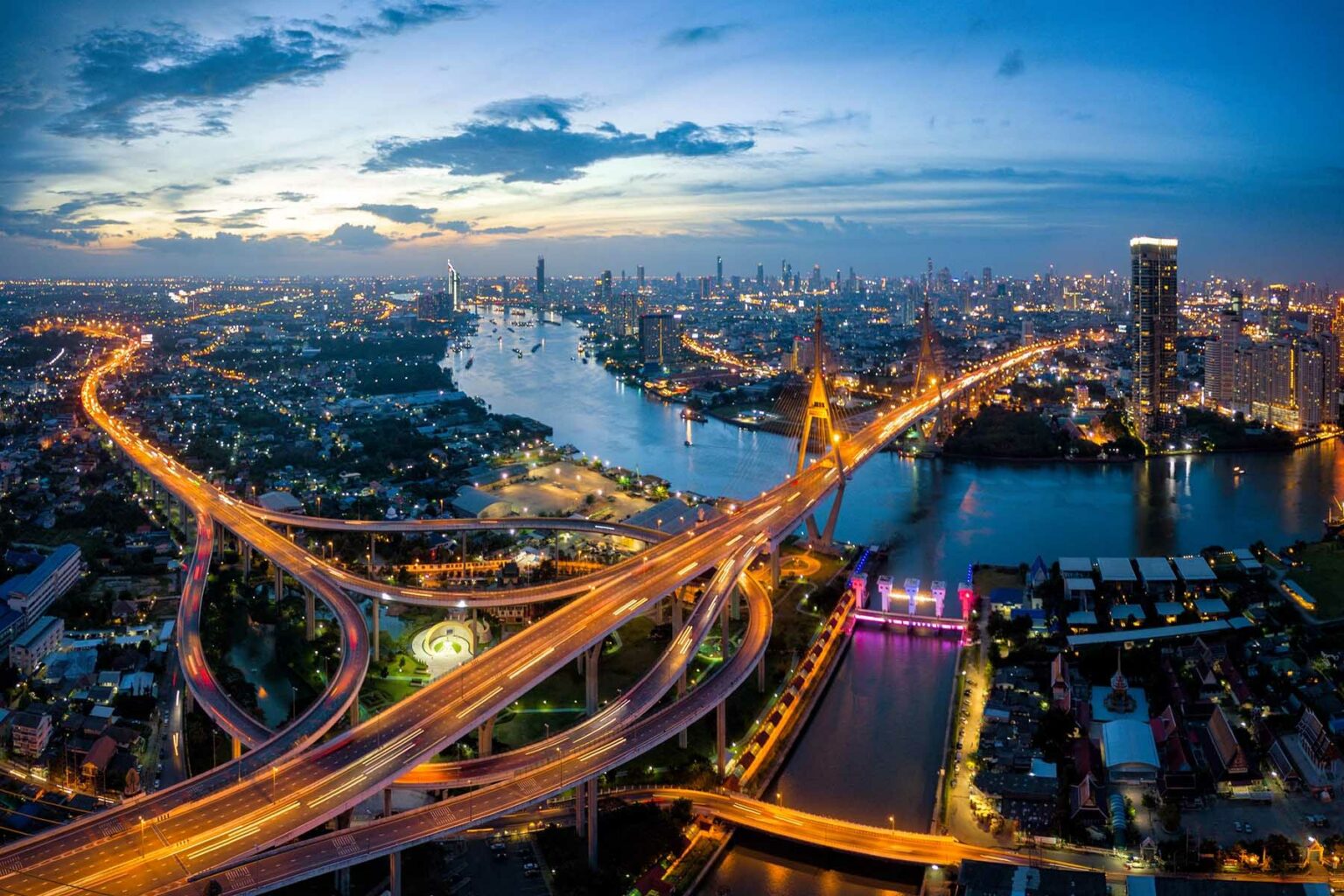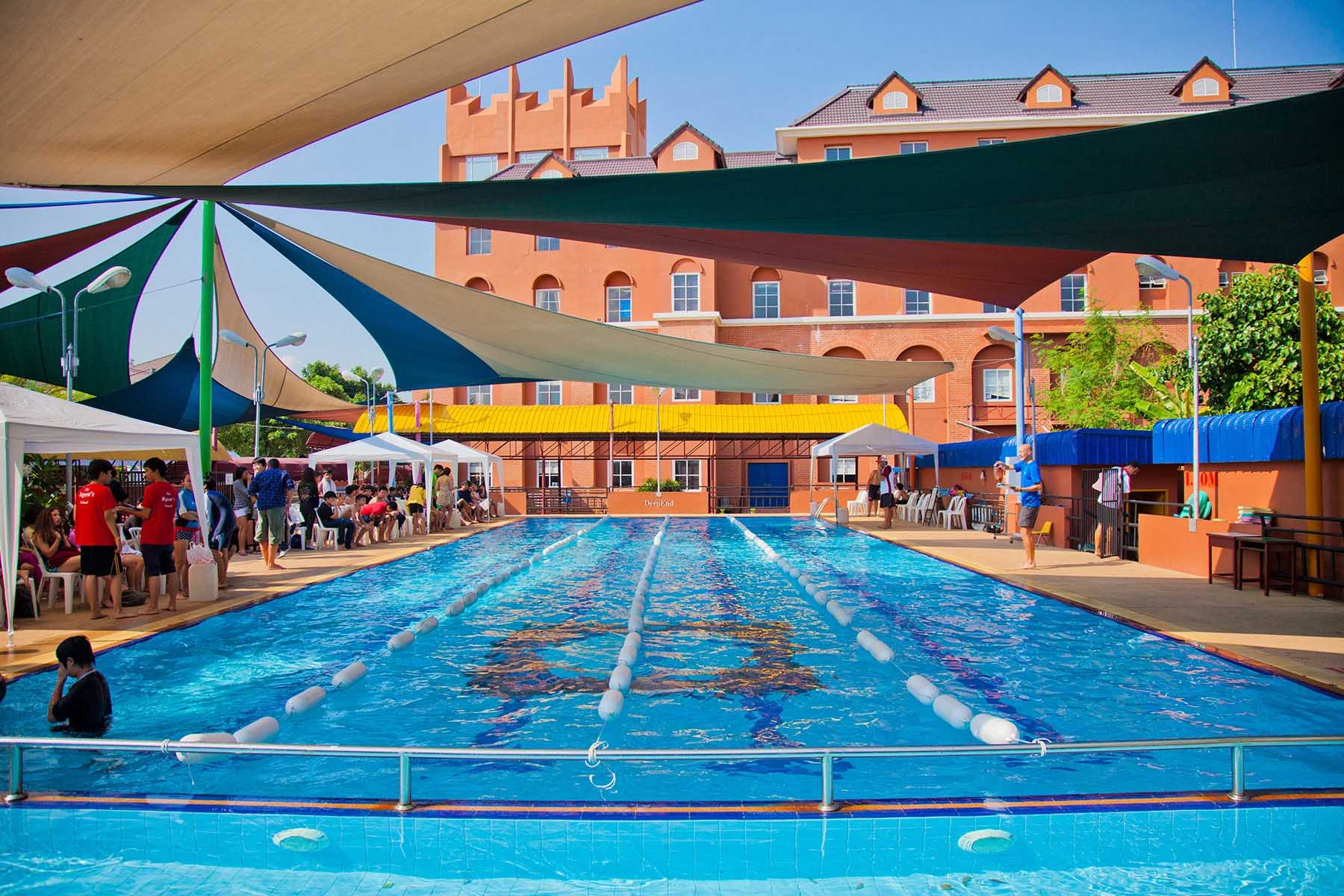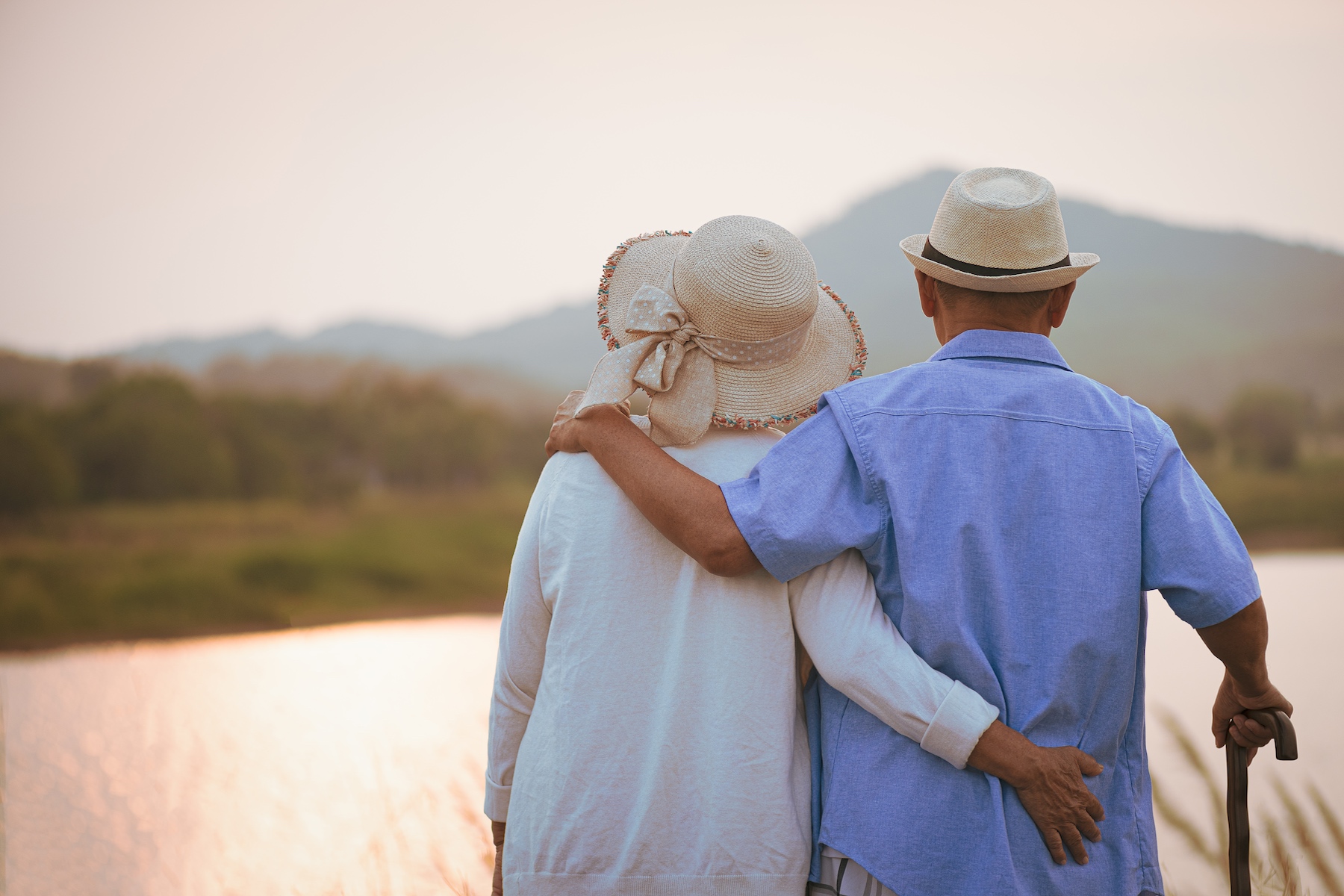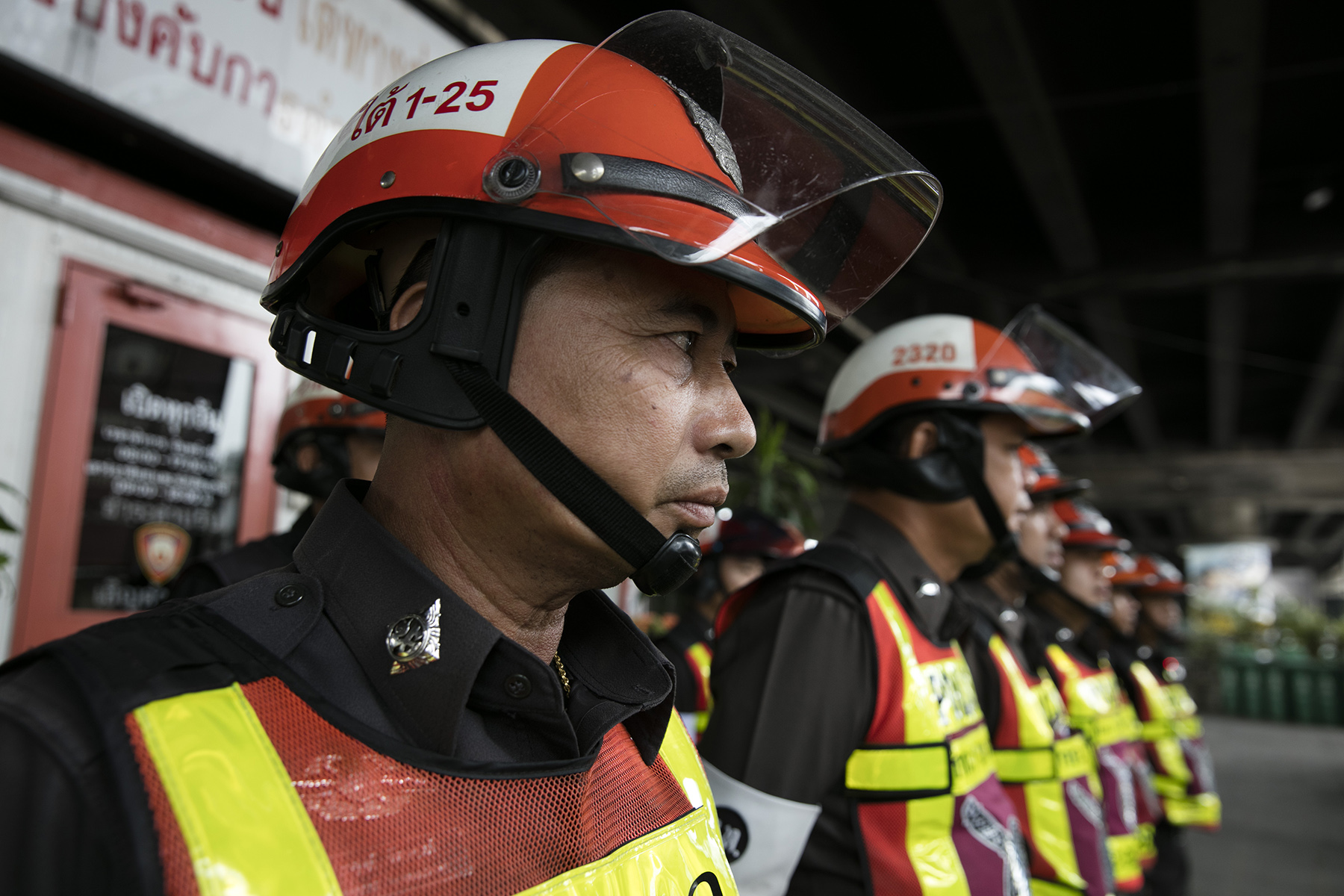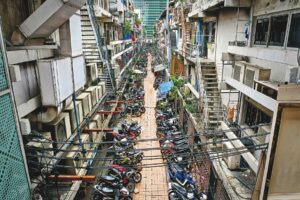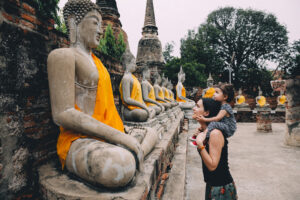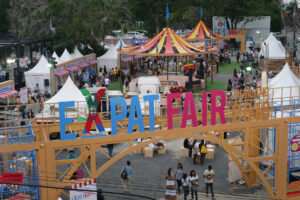With its beautiful mountains, breathtaking beaches, vibrant culture, world-famous cuisine, and welcoming locals, it is no wonder that so many people fall in love with Thailand and want to come live there.
However, deciding where in Thailand is the best place to live can be tricky. If you have been dreaming of making this country your new home, here are some cities to consider:
- Thailand’s cities, popular with internationals
- Where to live in Thailand
- Which places in Thailand are most family-friendly?
- Where are the best cities to retire in Thailand?
- Where to live in Thailand if you are single
- The most LGBTQIA+ friendly cities in Thailand
- Which Thai cities have the most affordable cost of living?
- Which cities in Thailand offer the best job opportunities?
- Which cities in Thailand are best for business?
- Are there any places to avoid in Thailand?
- Useful resources
Sirelo
It’s no secret that moving abroad can be stressful. Sirelo’s team of removal advisers is here to help. They provide five free quotes from international shipping companies so you can find the best options at the best prices. Take the stress out of your relocation to Thailand with Sirelo.
Thailand’s cities, popular with internationals
Bangkok
One of Southeast Asia’s most popular tourist destinations, Bangkok (often abbreviated in Thai as กทม: Gor Tor Mor) is a vibrant city that attracts many expats to make it their permanent home. A strong economy offers many business and job opportunities. It is Thailand’s most populated urban area with a large international population.
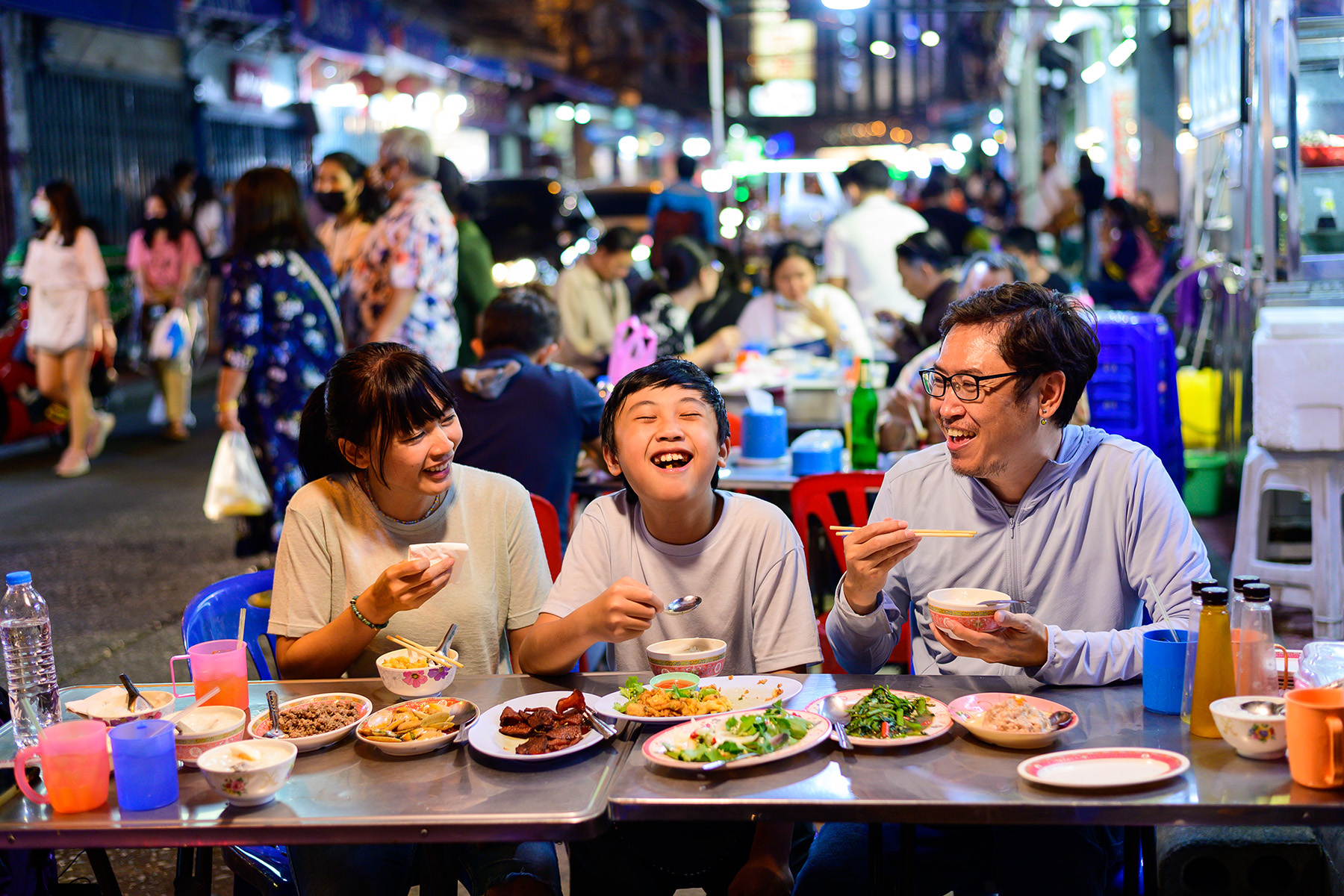
Therefore, it is one of the more expensive Thai cities (e.g., housing prices). Still, you have a choice of international schools for your children, access to good public transport, such as the Bangkok Skytrain (BTS) and Bangkok Subway (MRT), and quality healthcare facilities.
Sukhumvit
Newcomers who seek the thrill of living in the city’s heart, with its busy shopping malls and exciting nightlife, will not be disappointed by Sukhumvit. This neighborhood also offers various housing options for all budgets and lifestyles. Locals even compare Sukhumvit to the hubbub of city life in Paris, London, and New York.
Silom
Silom (meaning four winds in Thai) – the financial hub – with its numerous high-rise office blocks is often called the Wall Street of Bangkok. It is where the MRT and BTS meet, allowing the best access point to all city neighborhoods.
For those who want a breath of fresh air after a long day in the office or the hustle and bustle of high-end shopping, quirky galleries, and niche museums, Silom is also home to the largest green zone in Bangkok, Lumpini Park. It provides an outdoor exercise space with amenities such as:
- Accessible facilities for residents with mobility disabilities
- The Elder Citizens Club
- Social dancing courses
- A public swimming pool
- A public library
- Lumpini Youth Center
- A state-of-the-art gym
Residents regularly enjoy cultural and musical events (e.g., Music in the Park) and religious festivals in Lumpini Park.
Chiang Mai
Chiang Mai is less populated and more affordable than Bangkok, but it is still the largest city in Northern Thailand, with an airport, Chiang Mai International Airport (CNX).
It is the historic capital of the old Lanna Kingdom and rich in culture, boasting some of the best temples and museums in the country. When taking a break to explore your new home, you can hike along the ridges of the highest mountain in Thailand, Doi Inthanon, explore the national park, and discover quaint traditional villages in the area.
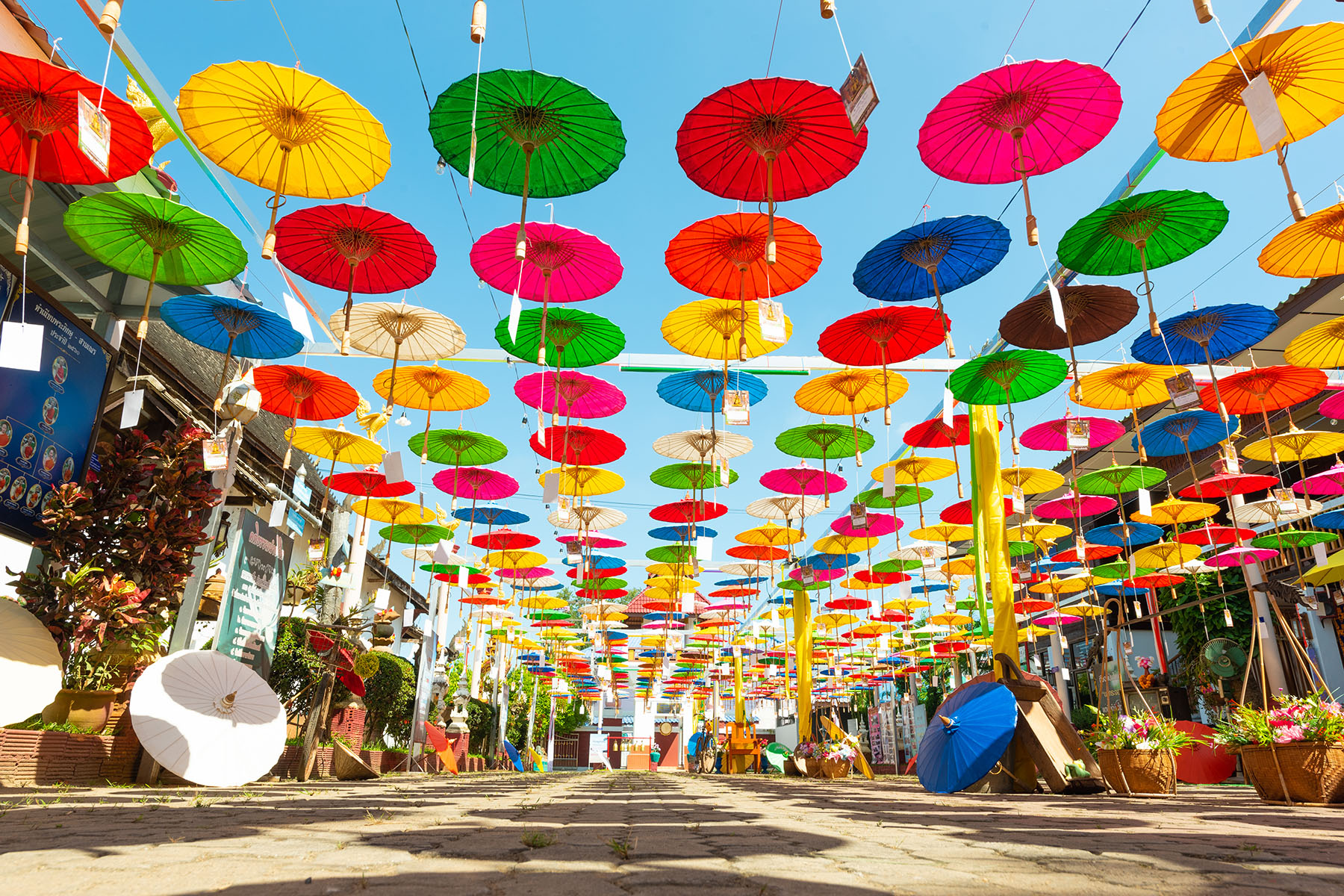
Although residents of Chiang Mai experience it as one of the safest cities in Southeast Asia, which is reflected by its low crime rates, these are still slightly higher than Phuket and Chiang Rai. However, its population is bigger.
The easiest way to get around Chiang Mai is by songthaew (สองแถว – meaning two lines because they have 2 benches in the back, where passengers sit in 2 lines). Fares range from around ฿20 to ฿30 for city stops. Tuk-tuks are another fun option, with rides ranging from ฿50 to ฿100.
Air pollution is a serious concern across Thailand, primarily due to traffic. However, forest fires also affect Chiang Mai during the widespread crop-burning season from December to April. If you choose it as your new city, it is a good idea to check the air quality index (AQI) regularly, especially with young children or if you live with a respiratory condition.
Nimmanhaemin
Located in the western part of Chiang Mai, Nimmanhaemin (i.e., Nimman Road or Coffee Street) is known as the hipster part of town, boasting the best coffee, shopping, and nightlife in the city. It is conveniently located near the airport and offers affordable condos and townhouses, making it an accessible and reasonably priced place to live.
Hang Dong
Hang Dong is a quiet suburb with high-end properties and housing developments outside the bustling city center. Many artists and creatives reside in this area, adding to the vibrant art scene of galleries, museums, and art centers.
Home to Kad Farang Mall, the biggest brand outlet in the city, and numerous cafes and restaurants, Hang Dong provides all the retail essentials you need without the noise of the big city.
For young families, there are 16 schools (including six international facilities) and many beautiful parks, hiking trails, and outdoor activities to plan weekend outings.
Phuket
Phuket, Thailand’s largest island, is well known for its stunning beaches, vibrant nightlife, and tropical beauty.
Understandably, it attracts many visitors, creating job opportunities, especially in the tourism industry. It is easy to get around each neighborhood by foot, but if you need to get to another part of the island and you do not drive in Thailand, you can opt for a taxi or public transport, including:
- Microbus
- Smartbus
- Songthaews
- Ferries and boats
Phuket Town
Phuket Town is far less populated than Bangkok, Chiang Mai, and Chiang Rai. Still, it has a massive shopping mall, where residents can buy just about anything, and is easily accessible by air because of its airport, Phuket International Airport (HKT).
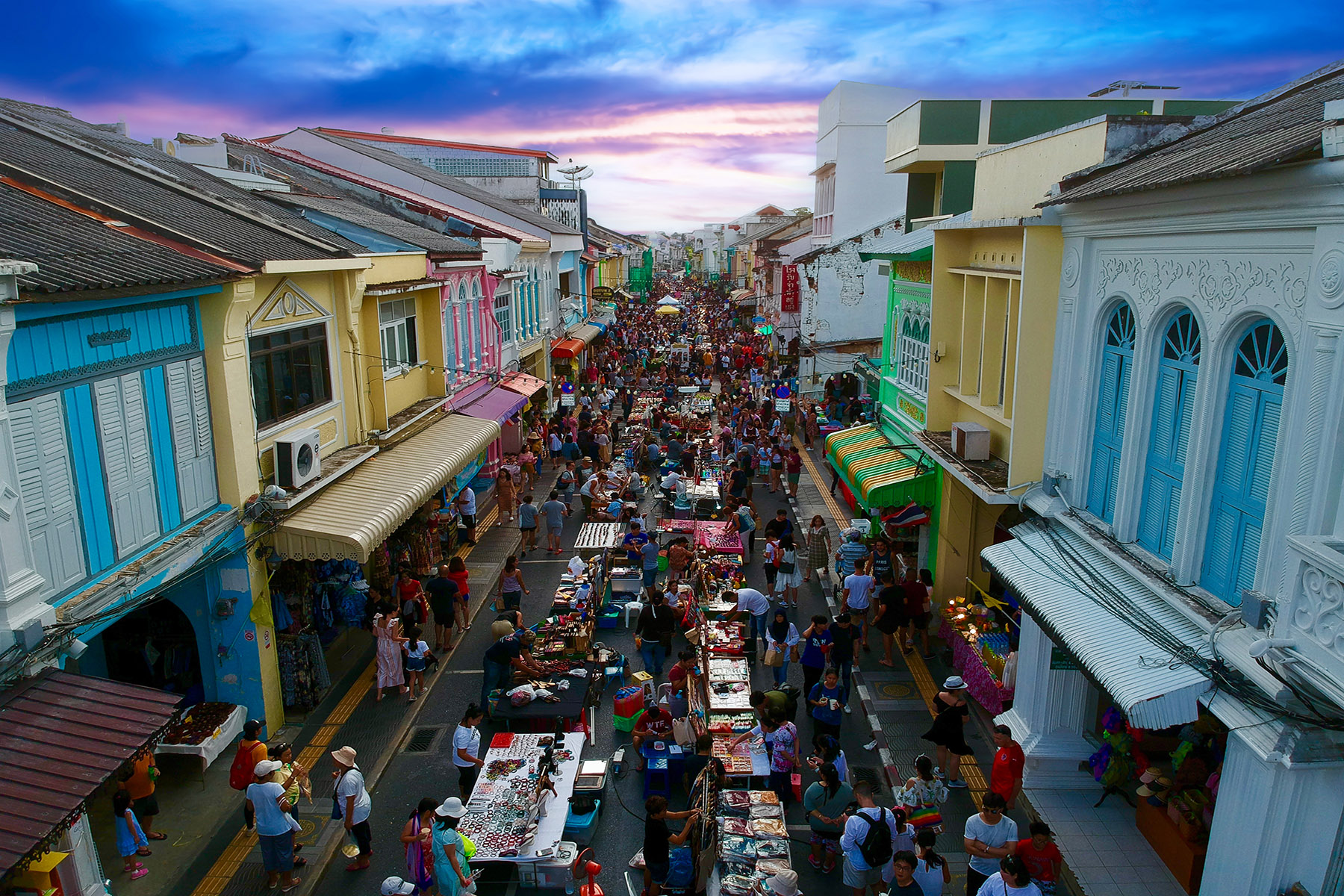
Expat families – who do not want to access public education – can choose from no less than 14 international schools. They also have the assurance of good healthcare with many hospitals across the island. You may find the cost of living slightly lower than Bangkok’s but more expensive than in Chiang Mai and Chiang Rai.
Patong
Patong (which literally means Banana Leaf Forest, though it is quite built-up) is located on the west coast of Phuket, which is the perfect location for those who want to be amid the island’s hustle and bustle. As it is popular with tourists, you can also expect to pay more in shops and restaurants.
Kata and Karon
Kata and Karon is a quieter, family-friendly neighborhood with a large expat community. Everything is within easy walking distance, which negates the need for a car.
Chiang Rai
Chiang Rai is the northernmost province of Thailand, surrounded by mountain ranges and rich with Lanna culture and history. It is more sparsely populated than other areas and is best known for its flower gardens, tea plantations, and beautiful temples.
Chiang Rai City
Due to its slower pace and more affordable housing, the town is popular with retirees and families looking for a peaceful lifestyle. For example, The average rental price in Chiang Rai ranges between ฿10,000 for a condo to ฿17,000 for a house, which is lower than in many other Thai cities.
Still, the city offers quality educational facilities (e.g., three international schools and two universities), public transport, and healthcare services. It is also accessible via Chiang Rai International Airport (CEI).
Getting around the city on foot is easy, but many residents use cars or mopeds. If you are not confident enough to negotiate your new hometown by driving, you can access the public bus network or the local songtaews (fares between ฿10–30 per trip).
Mae Sai
Mae Sai is located on the northern border of Thailand and Myanmar. It has a culturally diverse population with a mixture of Thai, Myanma, and Hill Tribe peoples (i.e., Akha, Mien, Lahu, Kayaw, and Longneck Karen).
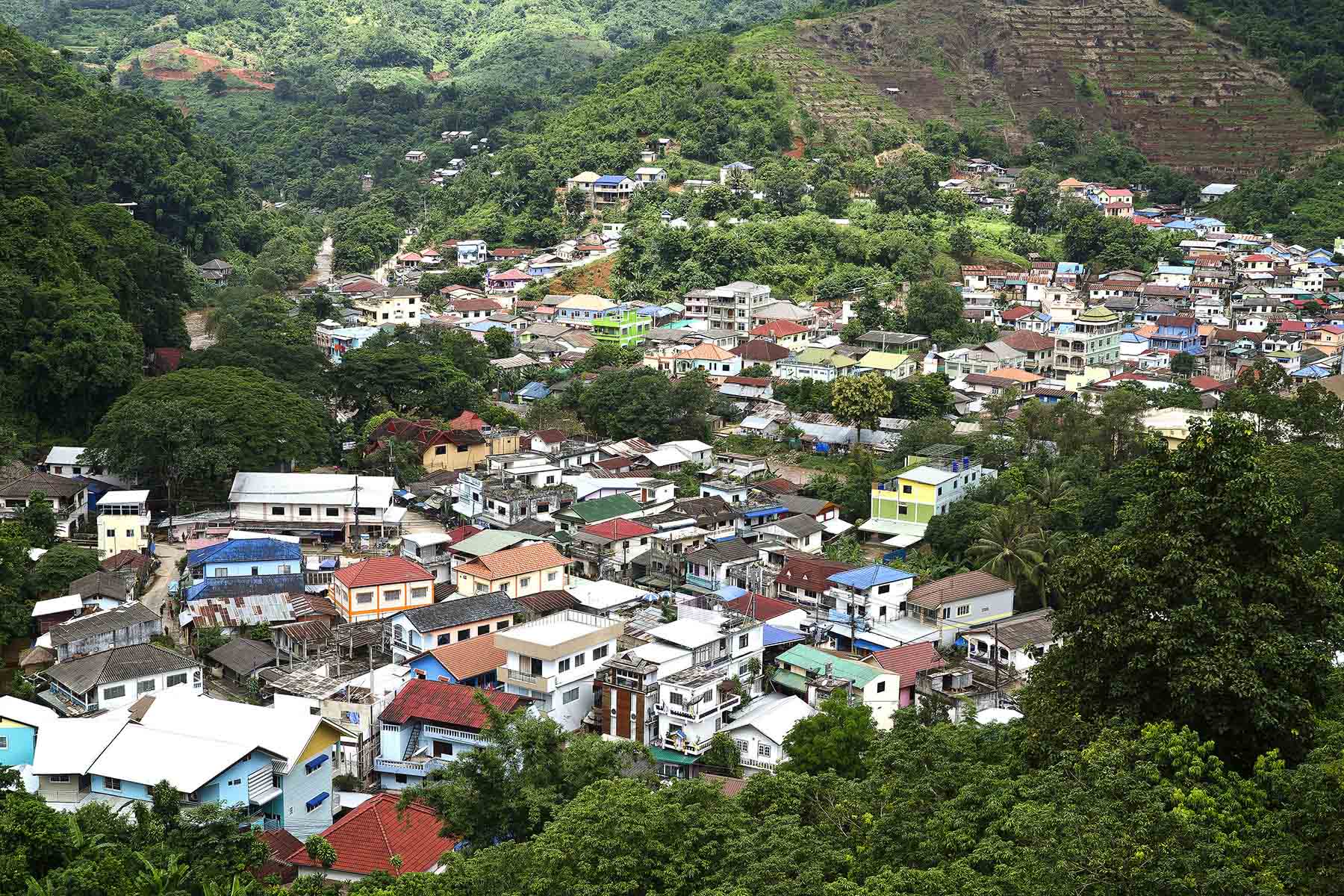
The area is one of Thailand’s most popular retail areas, with the well-known Mae Sai Market, where locals can conveniently shop for anything. However, it may also be overrun with tourists.
Expat families with children may need to consider public education or homeschooling if Mae Sai’s only international school is oversubscribed.
Where to live in Thailand
Which places in Thailand are most family-friendly?
When you move to Thailand as a family, you would most likely seek somewhere that offers quality healthcare and education, affordable housing and living, and low crime rates.
Indeed, the capital, Bangkok, with its vibrant urban vibe, large expat community, job opportunities, and around 90 international schools, attracts many professionals who move with their families from abroad. However, living and housing costs are far more expensive than in any other Thai city.
So, you may want to consider a smaller, quieter city – like Chiang Mai – that’s even safer than Bangkok, kinder to your pocket, and surrounded by natural beauty to explore over the weekends.
Compared to many other Thai cities, Chiang Mai ranks best on cost of living and property affordability indices. According to the Global Health Security Index (GHS), Thailand ranked highly for its healthcare facilities globally (24th in 195 countries) in 2021, with Chiang Mai faring marginally better than other cities, according to a Numbeo survey (2023).
Chiang Mai also boasts a diverse expat community with no less than six universities and numerous international schools.
Where are the best cities to retire in Thailand?
Are you contemplating retiring in Thailand? Then, you are likely seeking an affordable, safe city with access to quality healthcare and public transport. You may even value a more relaxed lifestyle, a tropical climate, or a place that offers many cultural events or a strong sense of community.
Cities like Phuket, Pattaya, Koh Samui, Chiang Mai, Hua Hin, Krabi, and Chiang Rai (in order of living affordability) may tick most of these boxes.
Chiang Mai
Chiang Mai, the spiritual epicenter of Thailand, offers the best of both worlds: urban conveniences and natural beauty. With its smaller population, this little city has a much slower pace than Bangkok and is one of the most affordable places in the country. It is also surrounded by mountains with a cooler climate, making it easier to keep moving and staying fit by hiking the nearby trails.
Chiang Mai has a rich history steeped in its ancient culture, with many temples and museums to explore. Yet, you’ll find anything you need in its mega malls and multinational department stores.
Chiang Rai
Retired expats are often attracted by Chiang Rai’s smaller population, slower pace of life, low cost of living, and affordable housing. Despite its country-living feel, it does not lack retail amenities or markets to buy fresh produce.
Pensioners can also access affordable healthcare services at state-of-the-art hospitals, such as:
- Chiang Rai Prachanukroh Hospital (Hong-Ya Thai)
- Bangkok Hospital Chiang Rai
- Mae Fah Luang University Medical Center Hospital
- Kasemrad Sriburin Hospital
It has a cooler climate than Bangkok, which makes for more comfortable living, and outdoor activities – like mountain biking, hiking, or golfing – will be much more pleasant.
Pensioners looking for more of a community – or assisted living facilities – could find suitable accommodation in one of the numerous retirement villages in the area.
Hua Hin
Hua Hin is only an hour’s drive from Bangkok. It has a comfortable climate all year round, allowing you to enjoy your retirement by teeing off on one of its nine golf courses or exploring its many leisure activities.
As it attracts many retirees from worldwide, you’ll likely find a sense of community with one of the local expat groups.
Koh Samui
Koh Samui may be slightly more isolated, but this adds to its quiet and laid-back beach vibe. It is much less touristy than many other parts of the country, allowing senior expats to fully enjoy some of the most beautiful beaches in the country.
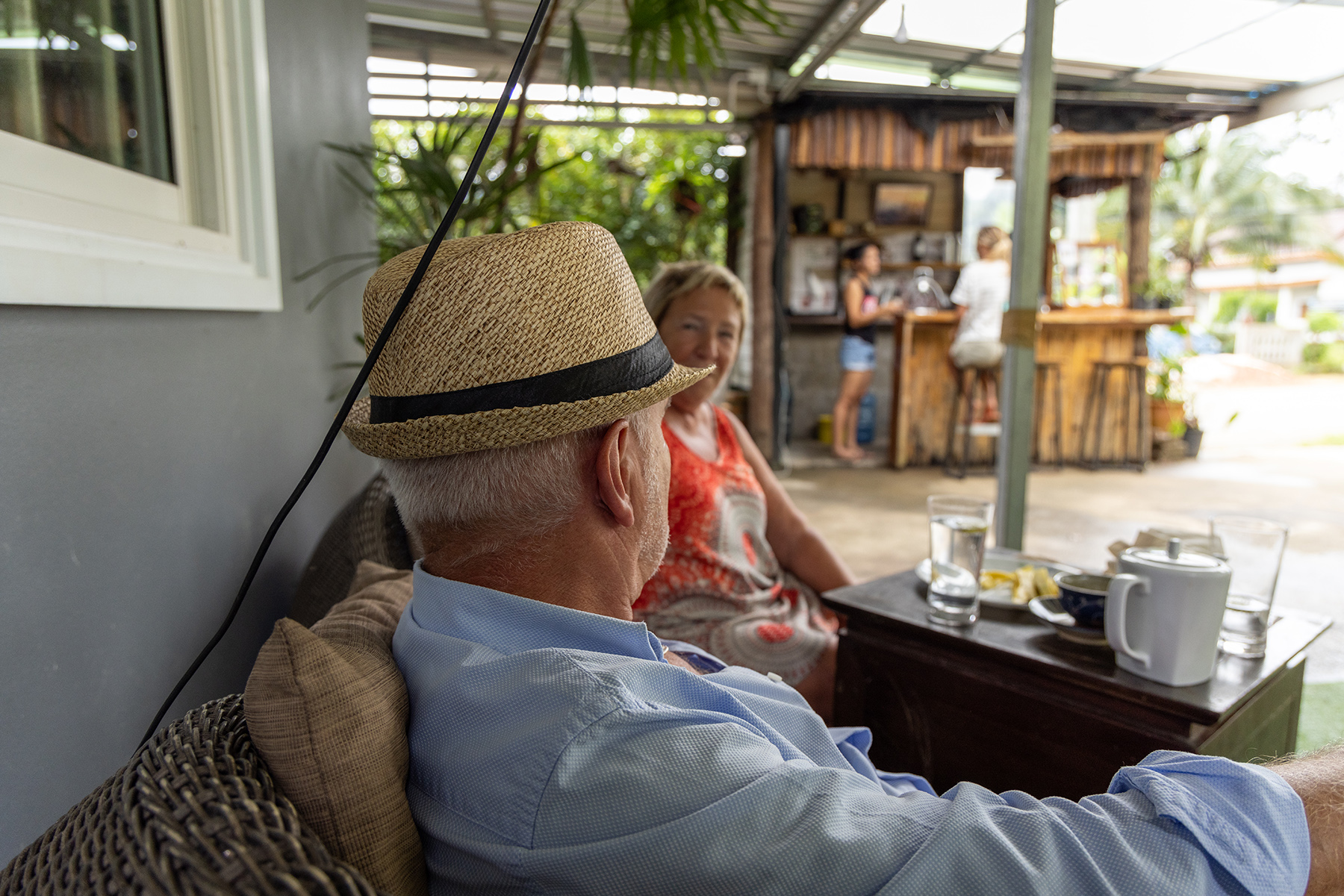
Pensioners can also keep fit by jungle tracking or hiking the surrounding hills and look after their wellness by visiting one of the many spas.
Seniors have a wide range of restaurants where they can enjoy local and international cuisine. Alternatively, they can easily cook delicious and nutritious meals at home with all the fresh produce found in markets. Housing and cost of living may be slightly more expensive than on the mainland, but still very affordable compared to other countries across the world.
Samui Ko also has many medical services available, including five hospitals.
Krabi
Krabi is a tranquil fishing village on the banks of the Krabi River with easy access to some of Thailand’s natural parks, Koh Phi Phi and Koh Lanta.
It has a smaller international community than the other locations, giving you more opportunity to integrate with the local Thai culture. It is also an affordable place to live.
Furthermore, you’ll have access to medical services with many pharmacies and clinics across the city, plus the well-equipped Krabi Nakharin International Hospital.
Pattaya
Pensioners have many affordable housing options in Pattaya, from living independently in condominiums to a home in one of many retirement villages dotted along its coastline.
For seniors who need more care, either temporarily after an operation or more permanently due to a chronic illness or frail health, there are home healthcare facilities or nursing homes with assisted living facilities, such as Nursing Resort Pattaya and Mandara Assisted Lifestyle available.
Retirees have a choice of pharmacies and small doctor clinics for minor ailments, and Pattaya also has five hospitals, two public and three private, including:
- Bangkok Hospital Pattaya (private)
- Pattaya International Hospital (private)
- Pattaya Memorial Hospital (private)
- Banglamung Hospital (government)
- Pattaya City Hospitals (government)
Of course, Pattaya has beautiful beaches to relax on and many cultural attractions and festivals to explore, like the Sanctuary of Truth and the Pattaya Floating Market.
And, for the older expat who wants to give back to their new community, there are many local volunteering opportunities, be it teaching English, animal shelters or marine conservation, childcare, or building projects.
Where to live in Thailand if you are single
If you are single and considering moving to Thailand, you’ll want to reside in one of the busier cities, like Bangkok or Phuket Town, as these have diverse communities (i.e., international and Thai) and lively social scenes offering more opportunities to meet interesting people and go on dates.

According to the National News Bureau of Thailand (NNT), Bangkok has ranked 30th out of the 100 Best Cities in the World (2023) based on factors like cultural events and vibrant nightlife.
The most LGBTQIA+ friendly cities in Thailand
Thailand is one of the most LGBT+ tolerant countries in Southeast Asia, with Bangkok colloquially known as the gay capital of the region. No wonder it is home to the largest transgender beauty competition, Miss International Queen. Other cities where members of the LGBTQIA+ community can feel safe include (to name a few):
- Krabi
- Pattaya
- Koh Samui
- Phuket
- Chiang Mai
The country welcomes transgender people and has become a popular medical tourism destination for gender reassignment operations. Many hospitals (e.g., Bumrungrad in Bangkok) also cater specifically to the needs of LGBTQIA+ patients.
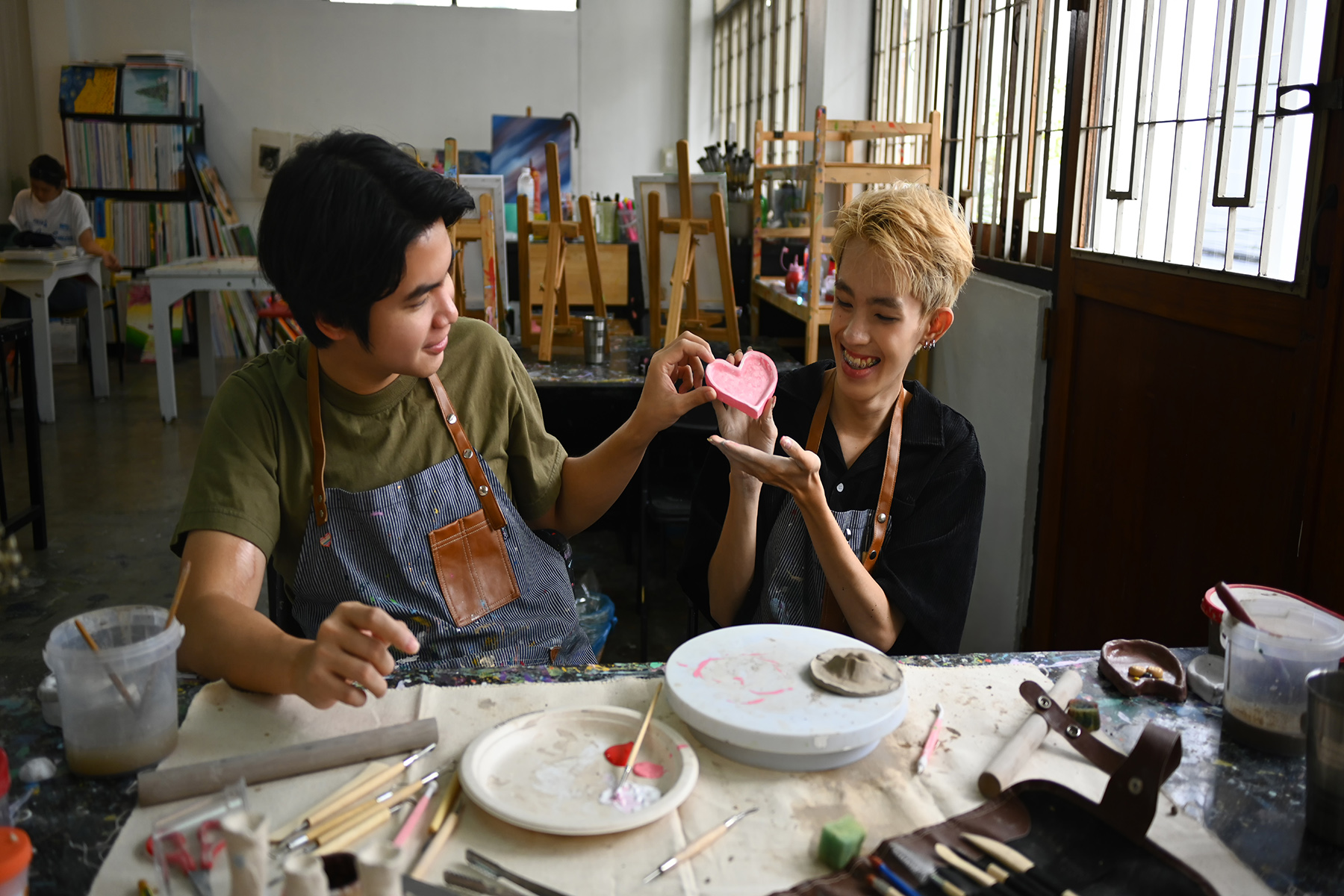
Although homophobia and discrimination still exist, it is getting less with each generation. With 73% of the population supporting gay marriage (2023), the Thai government officially legalized same-sex marriage in September 2024.
Which Thai cities have the most affordable cost of living?
Generally, the cost of living across Thailand is lower than in many countries in Southeast Asia, Europe, the UK, and the US.
Typically, housing, food, and shopping may be more expensive in larger cities or the closer you live to the center. Therefore, exploring residing on the outskirts or in smaller towns for more affordable alternatives may be wise.
Some of the most affordable cities in Thailand include:
- Chiang Rai
- Chiang Mai
- Ayutthaya
- Korat
- Udon Thani
Which cities in Thailand offer the best job opportunities?
Thailand scored very low on the Education First English Proficiency Index (EF EPI, 2022), ranking 97 out of 111 countries globally and placing 22 out of 24 nations in Asia. This means that finding a job as an expat could be difficult if you do not speak Thai, especially in rural areas with a smaller foreign presence.
Bangkok and Chiang Mai are prime destinations for job hunters as these offer more opportunities and higher salary prospects, partly due to their rapid economic growth compared to other Thai cities. Moreover, English is widely spoken, making it easier for international job seekers.
Which cities in Thailand are best for business?
When starting a business in Thailand, you need to consider the startup ecosystem of your chosen location, including:
- Number of local investors
- Number of global startup activities
- Local competitors
- Available technology and infrastructure
- Thai labor laws

Based on these factors, Thailand ranked a promising 52 out of 100 countries worldwide, reflecting its innovation and progress in the business and technology sector.
As far as Thai cities go, Bangkok (74) was under the first 100 out of 1,000 cities, followed by Chiang Mai (591), Phuket (640), and Pattaya (849).
Are there any places to avoid in Thailand?
For the most part, Thailand is a relatively safe place to live. However, pickpockets do exist in the busy tourist areas, such as:
- Bangkok’s Khao San Road
- Pattaya’s Walking Street
- Phuket’s Patong Beach
Additionally, when exploring nature reserves, jungles, mountains, or remote areas, be aware of potential risks, such as wildlife encounters and natural hazards. Therefore, heed local authorities’ advice and guidelines to ensure your safety during your adventures.
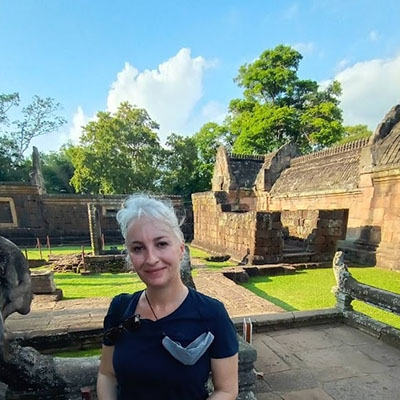
Local expert
Jane Evans
Insider tip
It is not advisable to explore remote areas alone.
Useful resources
- Thai Embassy – the official website of the Royal Thai Embassy, providing visa and immigration information
- Bangkok Post – one of Thailand’s leading English-language newspapers, often featuring articles on expat-related topics
- Thailand Tourism – the tourist board’s official website with handy information about different areas
- International Schools Database – a database to find international schools in Thailand
